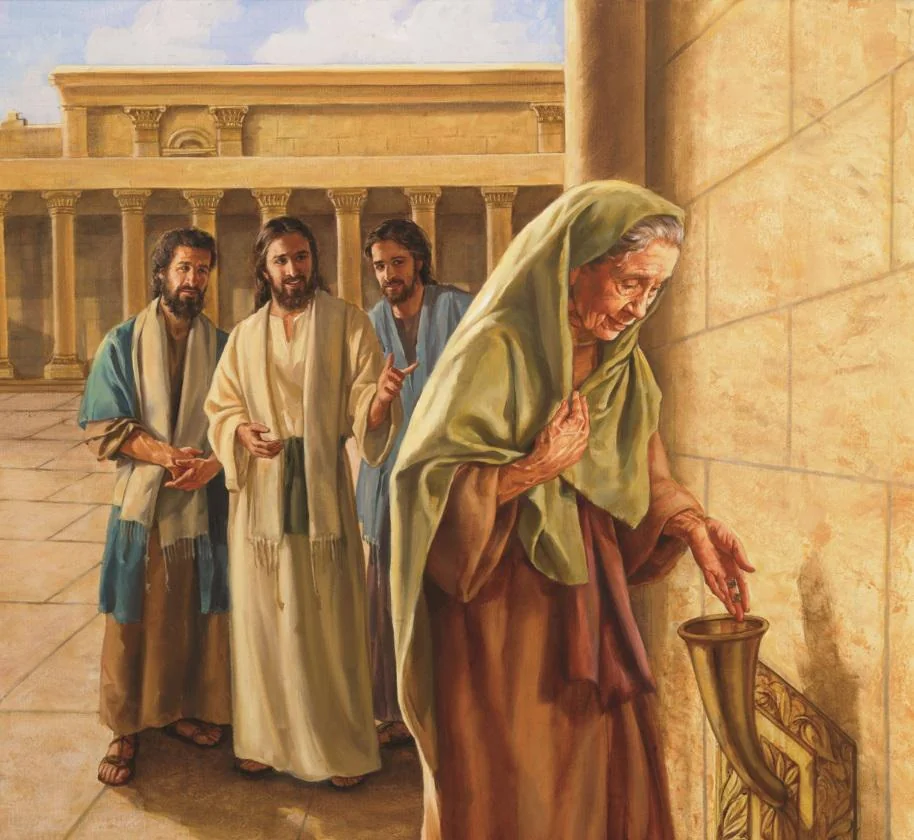Jijo Kandamkulathy, CMF
Claretian Publications, Macau
Gospel Reflection – Mk 12:38-44
32nd Sunday in Ordinary Time – Year B
The gospel reading and the first reading today are lessons we should learn from the life of the widows. In the first part of the gospel, Jesus narrates how the widows are maltreated by the scribes. Scribes are Jewish clerks and experts of the Law, and often work in support of Pharisaism. They are also described as jurors. There must have been exploitation of the widows in legal matters that Jesus is referring to.
A close reading of the text invites one to think why the reference to the widows. Jesus could have very well mentioned the exploitation of the poor or orphaned children who are the other categories of the “poor of Yahweh.” There must be a reason to it. Scanning the Torah, one can find that the widows do not have right to any landed property. If she does not have children, she is practically on the streets. So, this category of people already disadvantaged by the law and ill-treated by the scribes is what disturbs Jesus badly. After doing such injustice, the scribes do not have any scruples in saying lengthy prayers and sit in prominent places of the society. That is no ordinary accusation. Jesus is also challenging a social system that systematically disadvantages defenseless people and giving the exploiters prominent places in the society. Probably human nature still remains the same, only categories of people change. Poor people and poor countries get exploited more and more, even when there are protective laws against their exploitation.
In the second part of the reading, Jesus explains that such social positions of the scribes or anyone up in the social ladder are of no value in the kingdom of God by showing the example of the poor widow who put two coins in the treasury. Jesus tells that she has put more than the larger offerings of the affluent. Jesus indicates that it is love and trust that is measured in the divine world, not the amounts. It is not the quantity of things we offer but the quality of trust one places in God that makes one righteous in the sight of God. Jesus would also use the same measuring standards for time in the parable of the workers in the vineyard. It is not the length of time one spends in the church but the devotion with which one undertakes the service of the Kingdom that matters in heavenly standards. The one who works for one hour and the other for eight hours get the same reward under this measuring standard.
To understand the meaning of the two coins, we need to analyze human behavior very closely. When you go to church, suppose, you have two ten-dollar bills. As the offering bag comes around, what do you put in there? Keep one bill with you for emergencies, bus fare, taxi fare, a bottle of drinks—you might keep it as a reserve for anything you might require for the rest of the day—and put the other 10-dollar bill into the offering bag. These thoughts that we make in the mind before making the offering is the exercise of choice, of freedom. After going through all these thoughts, will you choose to put both ten-dollar bills into the offering? If it were I, I would put only one ten-dollar bill. We realize the greatness of the widow here. She was not making an unconscious spontaneous offering, instead, she was making a choice. A conscious offering, indicating that she knew that she had nothing more left with her. But she offered them trusting in God. She trusts that the Lord will give her for the rest of the day, for the rest of her life.
The devotion with which she offered is the example of faith that Jesus indicates. Faith is not about spontaneity or ignorant trust but a discerned, well thought out decision of life. Mistaking faith in God as credulousness and refusing to discern one’s actions and beliefs is not what makes a good disciple, but knowing well the disadvantages of our choices and still making the choice to live by the values of the kingdom of God—that makes one a refined disciple.


 Follow
Follow


